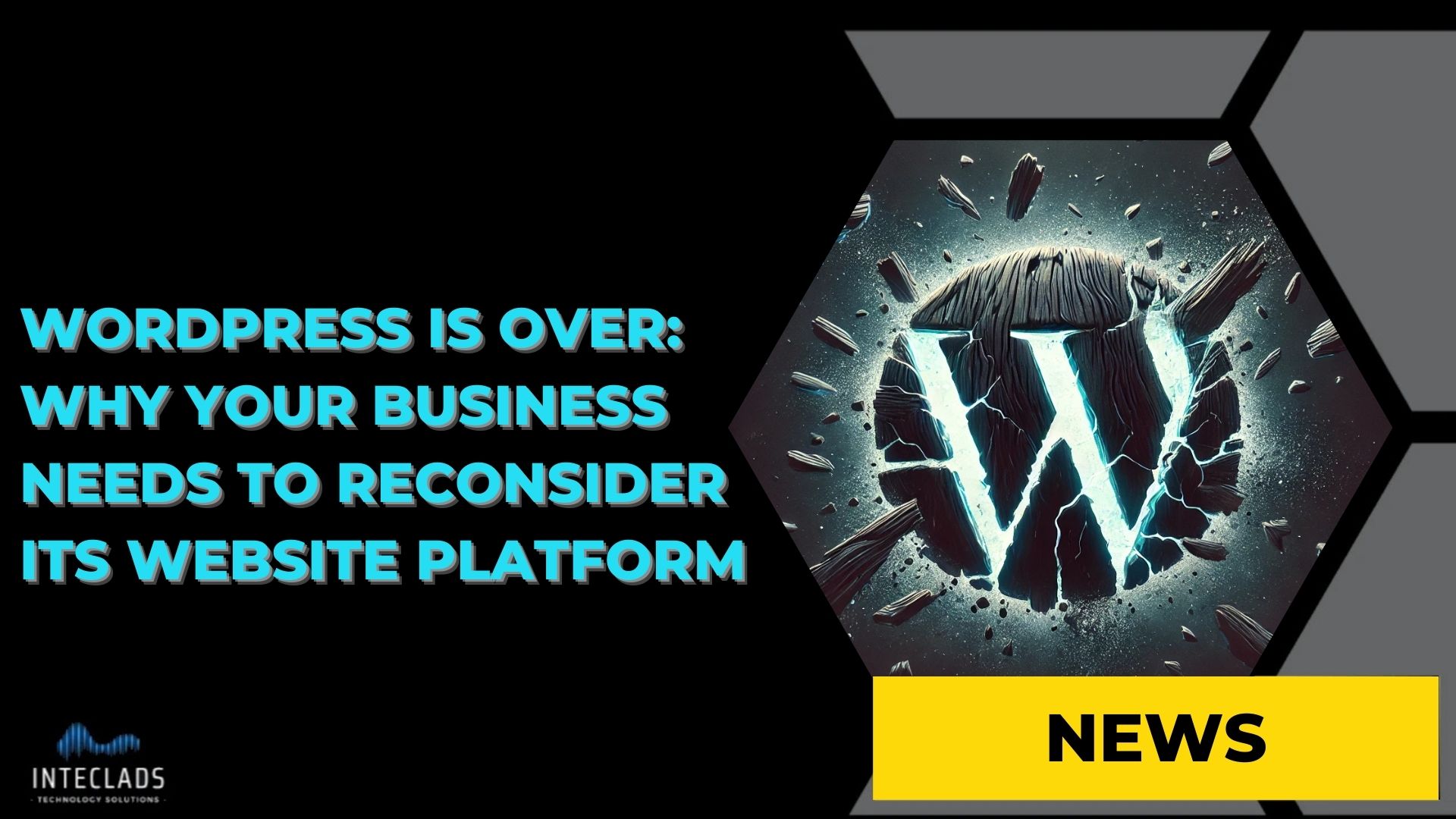
WordPress has become the go-to platform for businesses looking to build their websites quickly and affordably. Its open-source nature and vast library of plugins and themes make it highly customisable and accessible. However, the platform is not without its risks.
The recent legal battle between WordPress’s parent company and WP Engine, a popular hosting provider, has further highlighted these vulnerabilities. This dispute disrupted access to critical WordPress resources for WP Engine customers, making it impossible for them to update plugins and themes—a serious security concern. Such conflicts raise questions about the stability and reliability of the WordPress ecosystem, particularly when it’s used for business-critical websites.
These challenges serve as a reminder that while WordPress offers many advantages, its open-source nature also introduces significant risks. Below, we explore the key areas where businesses may encounter difficulties and why these risks should not be overlooked.
- Security Vulnerabilities
Open-source platforms like WordPress are a double-edged sword. While the open nature allows for innovation, it also makes the platform a prime target for hackers. Malicious actors can study the publicly available code to identify weaknesses. Add to this the thousands of third-party plugins and themes, which vary widely in quality and security, and your website could become an easy target for cyberattacks like data breaches or malware infections. - Dependency on Constant
Updates
Running a WordPress site is not a “set-it-and-forget-it” situation. The core platform, along with plugins and themes, requires regular updates to patch vulnerabilities and ensure compatibility. Failing to update can leave your site exposed to security risks. On the flip side, updates can sometimes break functionality or cause plugins to become incompatible with each other, leading to downtime or performance issues. - Performance Challenges
As your business grows, your website’s needs may become more complex. Unfortunately, WordPress sites can become sluggish if overloaded with plugins or if hosted on inadequate servers. Poor performance can frustrate visitors and negatively impact your search engine rankings. For a business website, these issues can translate to lost customers and revenue. - Compliance and Privacy
Concerns
With regulations like GDPR and other data privacy laws, businesses are under increasing pressure to ensure their websites are compliant. Using third-party plugins to handle critical functions such as customer data or cookies can introduce compliance risks, as these plugins may not meet regulatory requirements. Any data breach or privacy issue could result in legal penalties and damage to your brand’s reputation. - Limited Support
While WordPress boasts a large community for troubleshooting and advice, there’s no central support team to turn to in times of crisis. Unless you’re using a managed hosting service or have an experienced developer on call, resolving issues can be a time-consuming and frustrating process.
"Your website could become an easy target for cyberattacks like data breaches or malware infections."
The Bottom Line
WordPress can be a powerful tool, but its open-source nature and dependency on third-party contributors bring inherent risks. From security vulnerabilities and performance issues to compliance risks and ecosystem disputes, these challenges can pose significant threats to your business’s online presence.
For businesses that depend on their websites to drive growth, these risks underscore the importance of having a stable, secure, and reliable digital platform. Instead of navigating these challenges alone, consider exploring alternative solutions that are purpose-built to meet your business needs without the risks associated with open-source platforms.

